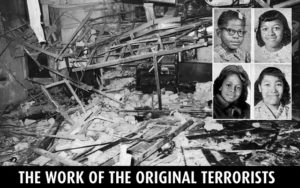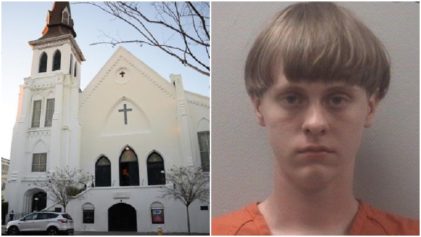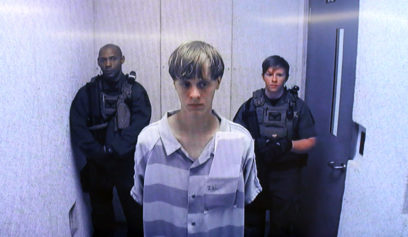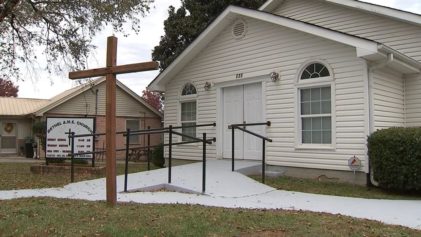While news of a domestic terrorist who massacred nine Black churchgoers might seem shocking to some Americans, it’s nothing new to the Black community. The Black church has a long history of being attacked by terrorists. This goes back to slavery, the civil rights era and the current day. One of the most infamous cases of domestic terrorism was the 1963 bombing of the 16th Street Baptist Church in Birmingham, Alabama, by members of the Ku Klux Klan. The lives of the four girls killed in the attack were explored in the Spike Lee documentary “Four Little Girls.”
In the 1990s, several Black churches caught fire in attacks believed to be linked to white supremacists.
“Congressional hearings were held in 1996 at the end of a two-year period when such arson spiked across the southeast,” said Conor Fridedersdorf in an article in The Atlantic. “In South Carolina alone, black churches that suffered probable arson attacks included Mt. Zion AME Church in Williamsburg, Macedonia Baptist Church in Manning, Saint Paul Baptist Church in Lexington, Rosemary Baptist Church in Barnwell, St. John Baptist Church in Dixiana, Effington Baptist Church, Mount Olivet Baptist Church, and Allen’s Chapel.”
In 2011, The Associated Press said Michael Jacques, a Springfield, Massachusetts, man, was convicted of burning a Black church to protest the election of President Barack Obama.
Today, FBI statistics show African-Americans still make up the majority of hate crime victims.
“In 2013, the most recent year for which federal data is available, the FBI identified 3,563 victims of racially motivated hate crimes. Black victims constituted 66 percent of the total. 21 percent were victims of anti-white bias. 4.6 percent were victims of anti-Asian bias. And 4.5 percent were victims of anti-Native American bias,” said The Atlantic. “If Wednesday’s attack is confirmed to be a hate crime (as authorities said in early reports) or domestic terrorism, it will share horrific similarities with the 2012 attack on a Sikh temple in Wisconsin, where a white supremacist killed 6 people, as well as other attacks here and abroad on synagogues, mosques, and churches by religious bigots.”
The Emanuel AME Church was founded by Morris Brown in 1861 after he grew frustrated with racism in the church. One of its founders, Denmark Vesey, was executed for his role in an abortive slave revolt. In a backlash against the Black church, which was seen as a focal point of anti-slavery efforts, white South Carolinians passed a series of draconian laws, such as requiring a white person to be present at Black church services. The Emanuel AME was later set ablaze and, for a while, church services had to be conducted in secret.
The church continued to play an important role in Black history. It served as a stopover point on the Underground Railway, and Booker T. Washington and Dr. Martin Luther King both spoke there. Clementa Pinckney, the church’s pastor who was slain in Wednesday’s attack, also played an active role in state politics.
“For more than a decade he’d served as a member of the South Carolina State Senate. He was an advocate for a bill in the state legislature that would require police officers to wear body cameras, calling it ‘our No. 1 priority,’ according to the Charleston Post and Courier,” reported The Washington Post.
Robert Mickey, a University of Michigan political science professor who studies race and post-war politics in the South, said the recent attack dredges up painful memories for Black parishioners.
“When you’re on the receiving end of the violence it’s pretty hard not to put it in that context,” said Mickey in an article in The Washington Post. “You can’t help but notice the continuities, the violence and fear that constantly revisit these same communities.”



